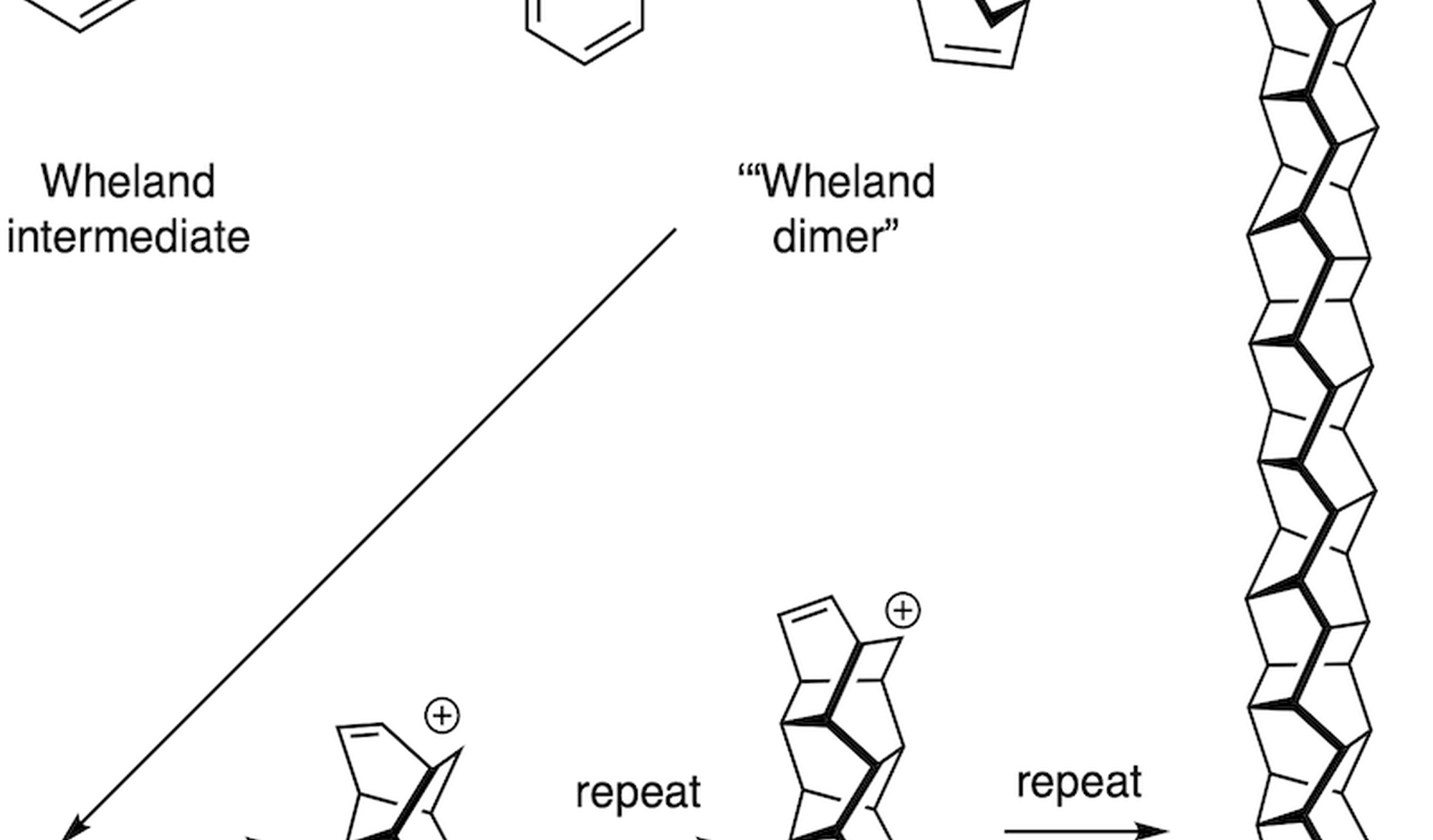Computational design of synthetic routes to polytwistane nanothreads

Nanothreads are novel one-dimensional carbon-based nanomaterials. The first synthesis of nanothreads was achieved by slow compression (to ~20 GPa, or 200 000 atm) induced polymerization of benzene. To date, nanothreads have been synthesized from a variety of aromatic molecules. One defining feature of nanothreads is the unique combination of extreme thinness (only a few Å in diameter) and rigidity (multiple covalent bonds connecting each unit). This feature distinguishes nanothreads from traditional polymers that are generally flexible (by rotation around single bonds) and nanotubes that are normally much thicker.
Functional groups can be introduced to nanothreads via proper choice of precursors or post-polymerization functionalization. The rigidity of nanothread backbone could allow desired alignment of functional groups in terms of order and spacing, which may open opportunities to many interesting applications. In a sense, a nanothread is a platform for functionality based on the properties associated with the functional groups.
So far, nanothreads have only been synthesized via high-pressure solid-state polymerization. Solution phase synthesis of nanothread is an interesting alternative. In this work, the student will
- Work on proposing reasonable synthetic routes (retro-synthesis) to a specific nanothread, polytwistane, and using computational chemistry to examine the feasibility of the proposed reaction pathways.
- Learn how to use computational chemistry software (for example, Gaussian 16) to optimize the geometries of reactants, transition states, intermediates, and products, and to compute the energies, enthalpies, free energies of the optimized structures.
- Learn how to assess the feasibility of a reaction pathway and the favorability of competing pathways based on the computed reaction profiles.
The student is expected to have a good knowledge of organic chemistry. Experience with DFT calculations is preferable but not required.
